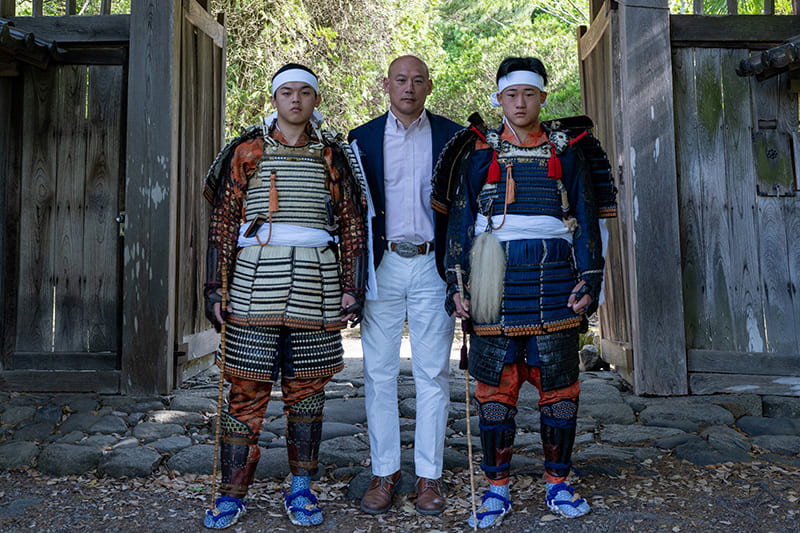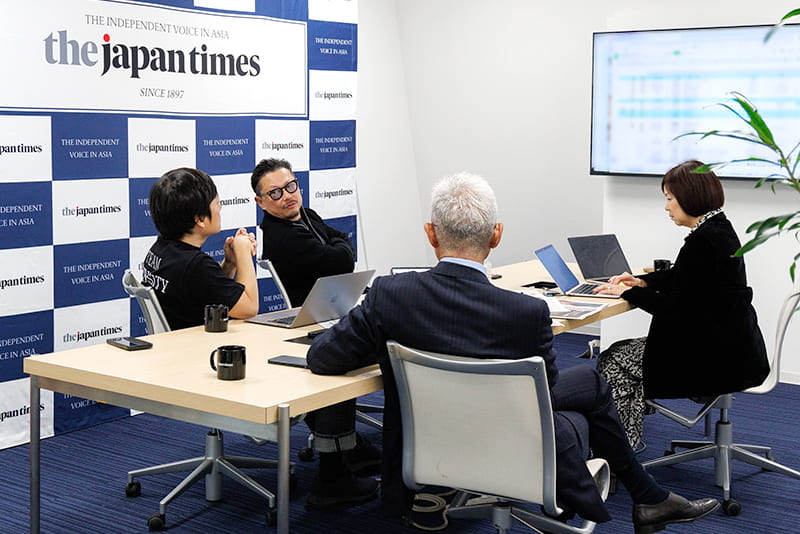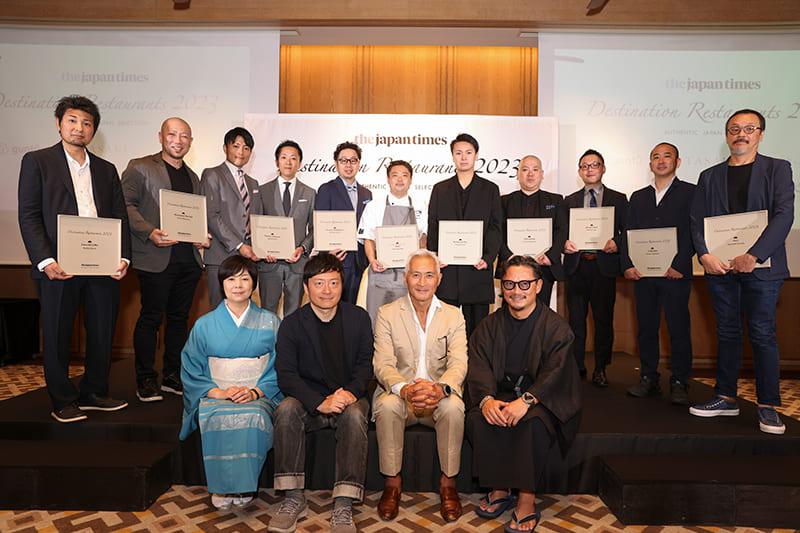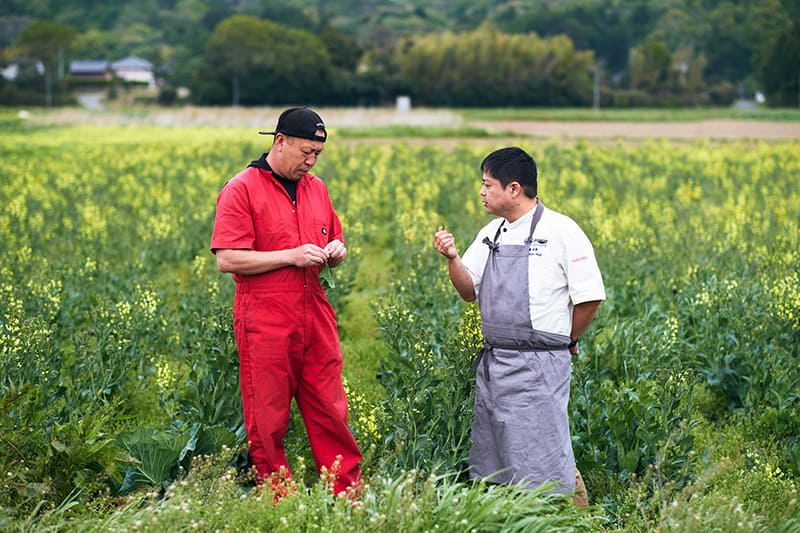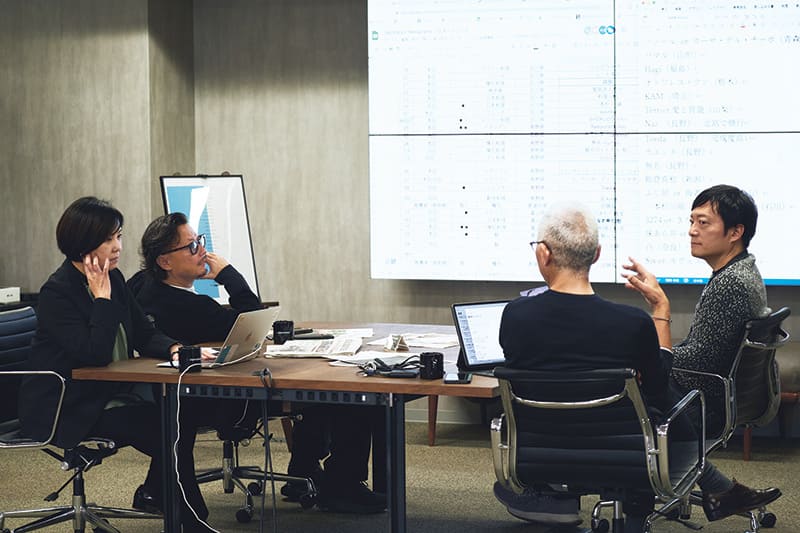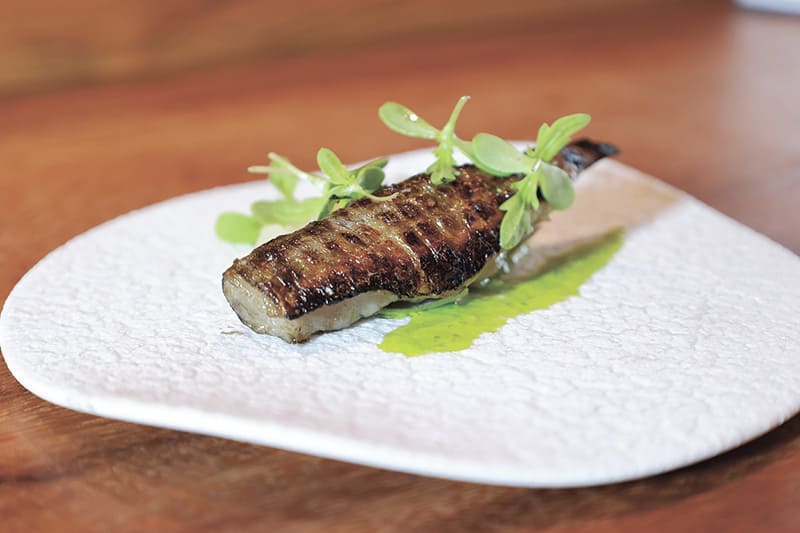June 23, 2023
Overcoming disaster, Hagi grows in Fukushima
RESTAURANTS
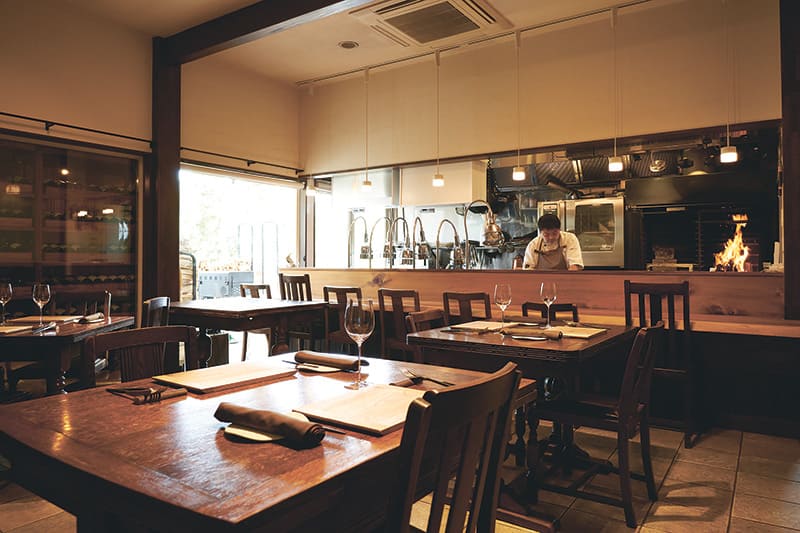
When it came to selecting a Destination Restaurant of the Year from the 10 winners for 2023, the three judges were unanimous: The honor went to the innovative restaurant Hagi in Iwaki, Fukushima Prefecture.
Two and a half hours from Tokyo by limited express train, Iwaki has over 320,000 residents, making it the Tohoku region’s most populous city after Sendai in Miyagi Prefecture. A center of coal and other mining in the Meiji Era and a thriving industrial city during the period of rapid economic growth in the 1960s and 1970s, Iwaki is also home to the fishing and industrial port of Onahama, which boasts Tohoku’s highest value of shipped manufactured goods. Iwaki is also known for Spa Resort Hawaiians, with its popular hula shows. Established as a source of employment for former coal miners and their families after the mining industry began to decline in the 1950s, the spa gained international recognition when its success story was told in the film “Hula Girls.”
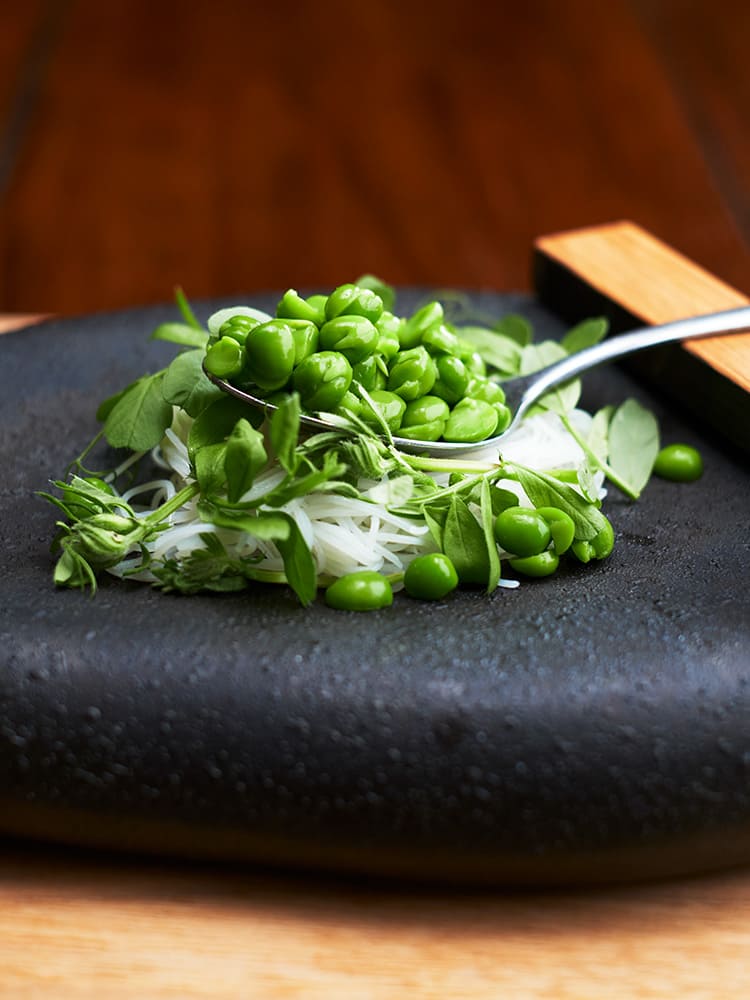
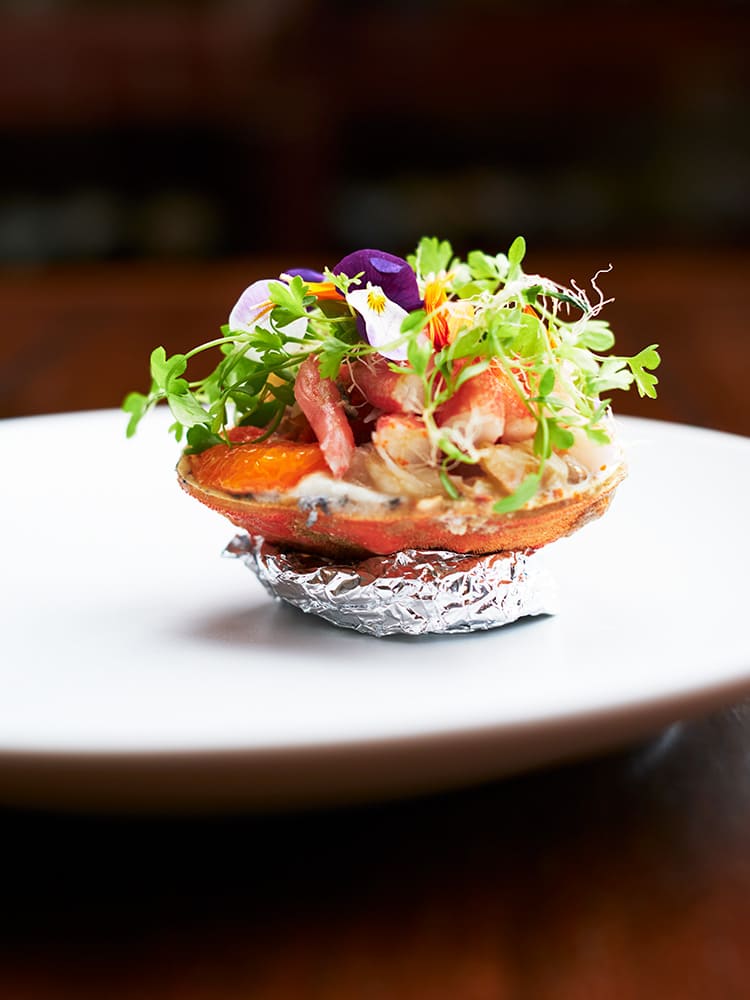
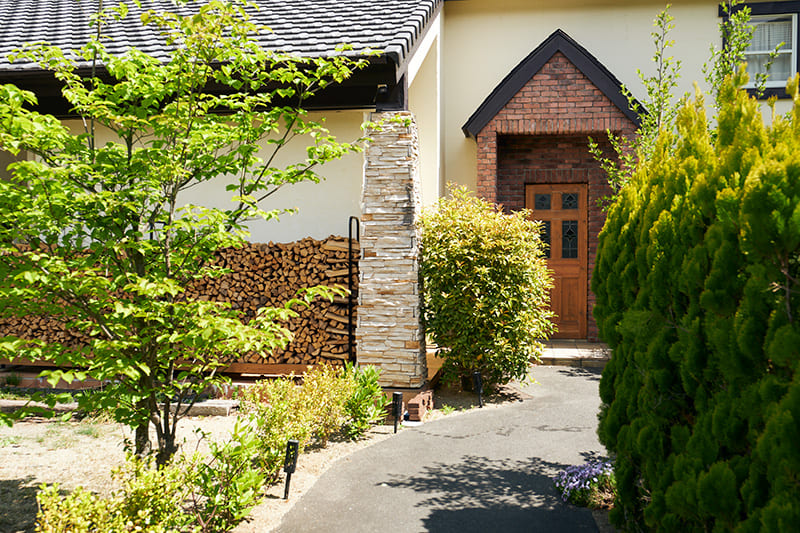
As the restaurant’s cuisine became more natural and expressive of terroir, the interior design was adjusted to match.
● 171-10, Onigoe, Uchigomidaisakai-machi, Iwaki-shi, Fukushima Prefecture
Tel: 0246-26-5174
http://www.hagi-france.comjp/english.html
More recently, however, the region became a major disaster area due to the earthquake and tsunami of March 11, 2011. During the disaster, 468 people died in Iwaki and 91,180 buildings were partially or completely destroyed, according to the city government. The city spans an area between 25 and 60 kilometers south of the Fukushima No. 1 nuclear power plant, which suffered a meltdown, and three days after the tsunami, radiation levels in the area temporarily spiked. Fortunately, winds changed two days later to blow the radiation out toward the ocean, avoiding large-scale pollution in Iwaki and lessening the impact of nuclear fallout on its water supply and farm products.
Nevertheless, sales of some food products were restricted immediately after the nuclear disaster. Trawling and other fishing operations were long suspended on the Fukushima coast, including at Onahama port, 15 minutes by car from Hagi. Today, the market abounds with farm products whose safety has been ensured (although restrictions remain on wild mushrooms and other edible mountain plants in some areas). Through a process of sampling and ongoing testing of radiation levels in seafood, authorities gradually expanded the locations where fishing was permitted and the species that could be harvested, until by February 2020 all types of seafood were back on the market.
Throughout these 12 hard years, the chef and owner of Hagi, Harutomo Hagi, has led the way in collaborating with local producers to show the world the excellence of Fukushima’s food. Before the disaster, Hagi operated a French restaurant that seated about 40 and offered a prix fixe dinner for ¥5,000 ($35). However, his approach to cooking and work shifted dramatically after the disaster. Making up his mind to pay producers a fair price for high-quality ingredients without bargaining, he raised prices at his restaurant with the aim of improving producers’ lives. He changed the name of the restaurant, eliminated lunch service and switched to a single omakase menu for ¥19,360 (tax and service fee included). Until very recently, he was able to serve only one party per day.
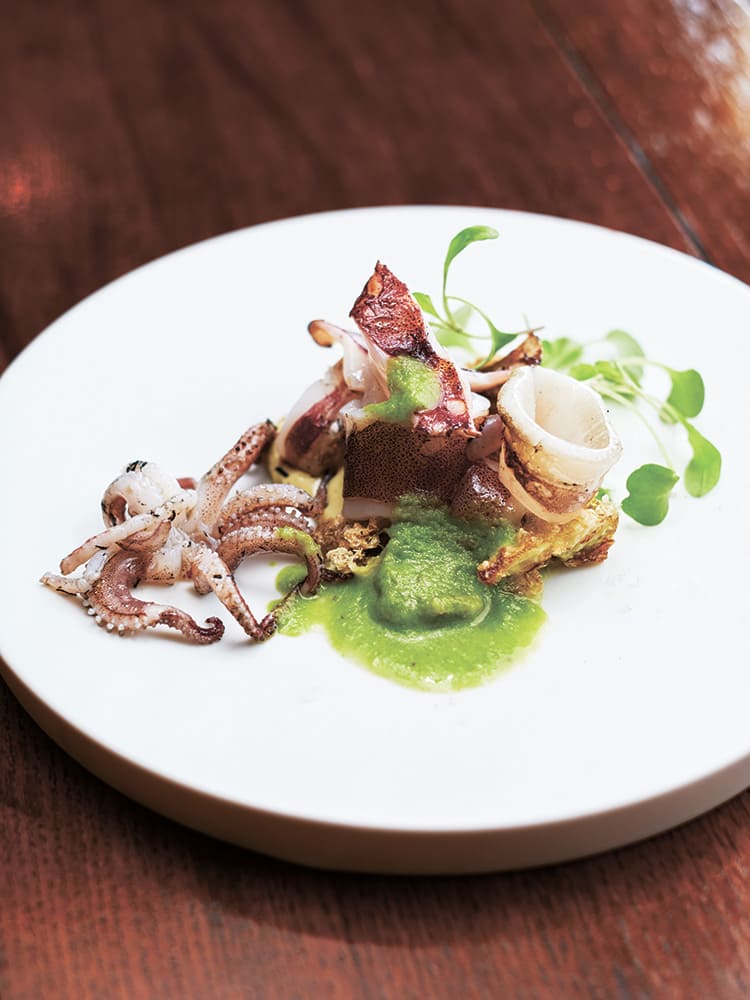
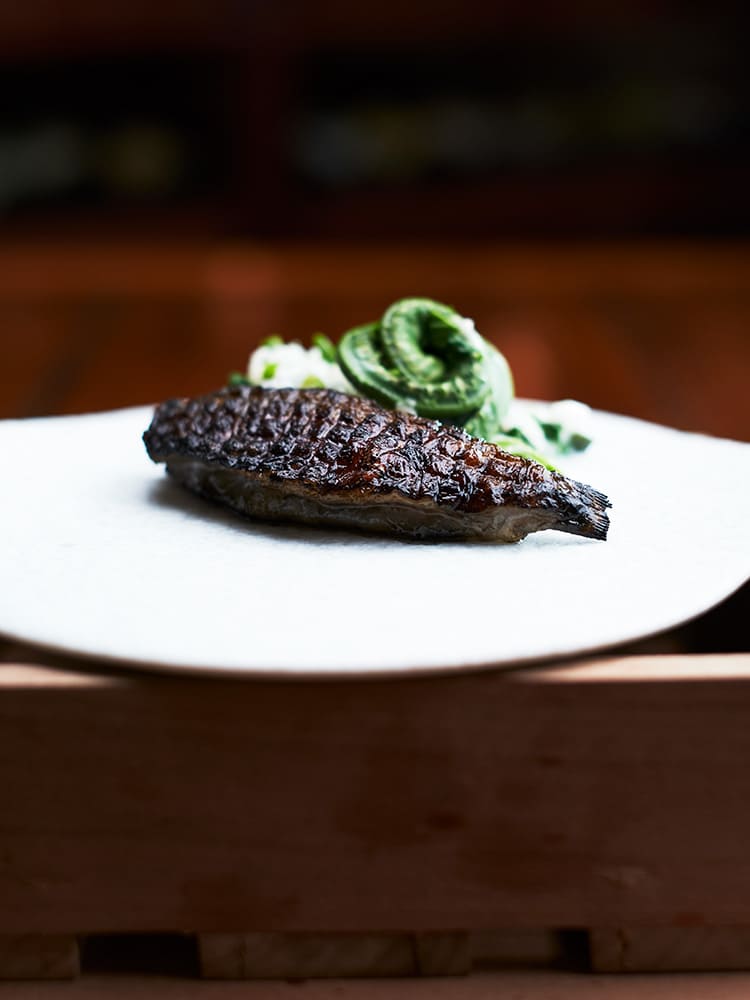
“Aside from the restrictions related to the nuclear disaster, some food producers evacuated,” he explained. “I experienced the loss of things that had been there until the day before. If I still wanted to cook with local food, the best I could do was gather enough for one party per day.”
Although today the restaurant has returned to normal operations, it still seats only eight guests at a time. It survives at a fifth of its former capacity thanks to the many foodies who travel from Fukushima and well beyond to dine there.
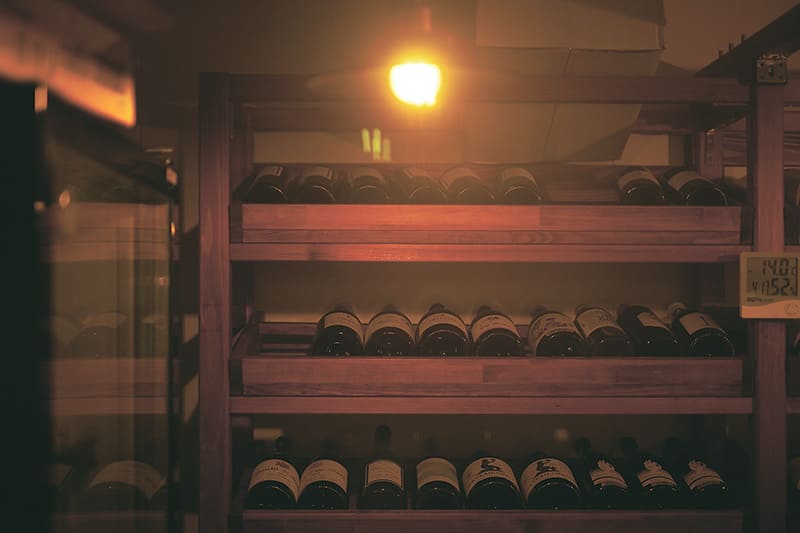
The menu consists of about 15 courses, from an amuse-bouche to dessert. Over 90% of ingredients come from within a one-hour radius by car from the restaurant. For example, one amuse-bouche paired char eggs that fishermen were struggling to sell locally with new onions dug not half an hour before roasting them over a wood fire for an hour until meltingly soft. Mehikari (greeneyes), the official fish of the city of Fukushima, is seared over a wood fire and combined with sake lees from a brewery and wild edible plants such as the young leaves of the koshiabura tree. No matter the dish, each ingredient explodes with flavor in the way only hyperlocal food can.
Thanks to the determination of chefs and producers in Fukushima who have stayed on the land and moved forward with hope despite the disaster, diners are able to enjoy this food today.
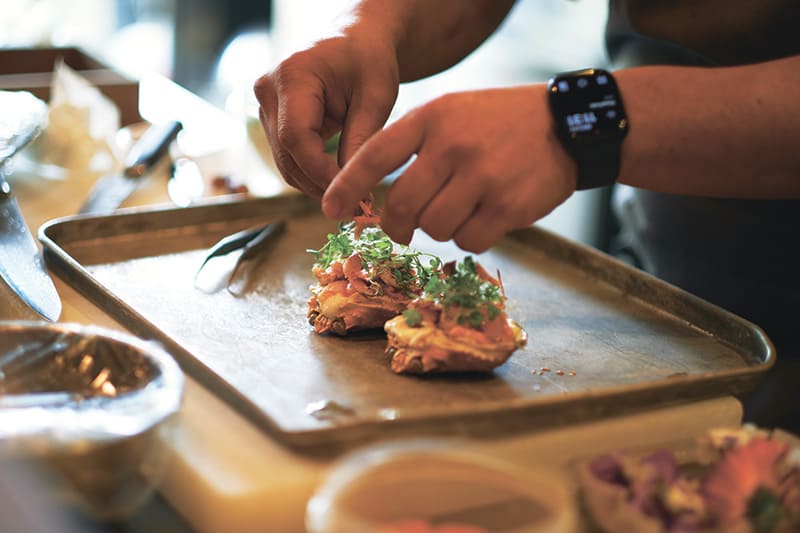
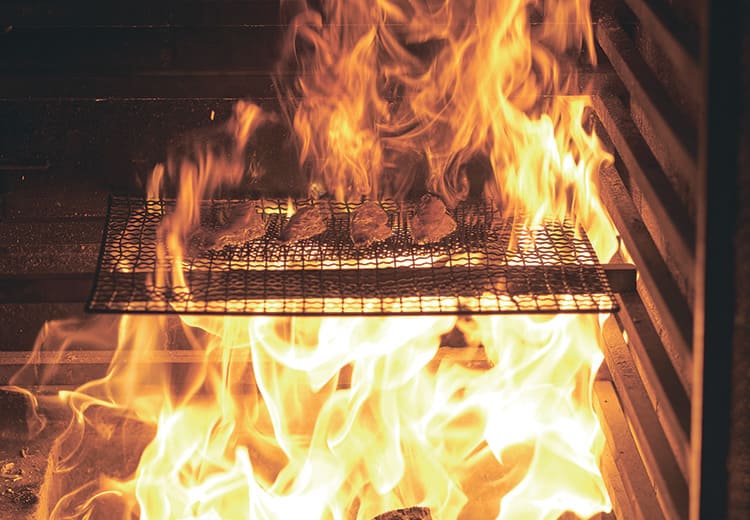
震災と原発事故を超えて福島で食材と向き合う。
「Destination Restaurants 2023」に選出された10店から、特にその名にふさわしい1店「The Destination Restaurant of the year 2023」には、イノベーティブ・レストラン『ハギ』が選ばれた。
店は福島県のいわき市にある。2011年の東日本大震災での福島第一原発での事故直後は一部の食材が出荷制限されたが、現在では安全性が確認され、農作物や魚介類のほとんどが市場に出回っている。
『ハギ』オーナーシェフ、萩春朋は過酷な12年間を生産者と手を取り合って料理をつくり、福島県産食材の魅力を世界にアピールしてきた。以前は5,000円でディナーコースを出す、40席強のフランス料理店を営んでいたが、震災後はディナーのみの営業で、19,360円(税・サ込み)のコース1本に。席数は現在8席。それでも地元及び、他府県から多くの人がやってくるため経営が成り立つ。
使用する食材は店から車で1時間以内の範囲で産するものが9割を超える。これらを味わえるのは、苦難を乗り越えたシェフや生産者を含む、福島の人々のおかげである。
Return to Sustainable Japan Magazine Vol. 25 article list page

